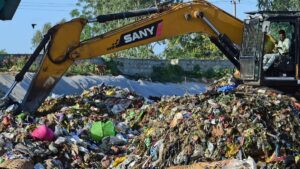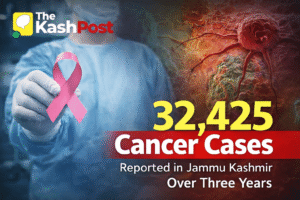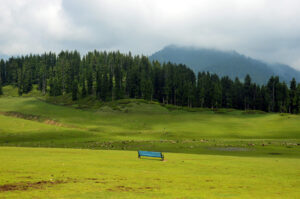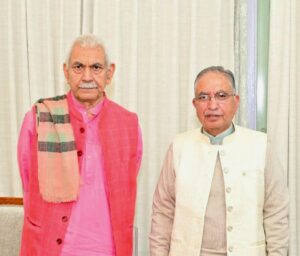Blood Donation Drive Held in Baramulla to Honor Pahalgam Terror Attack Victims
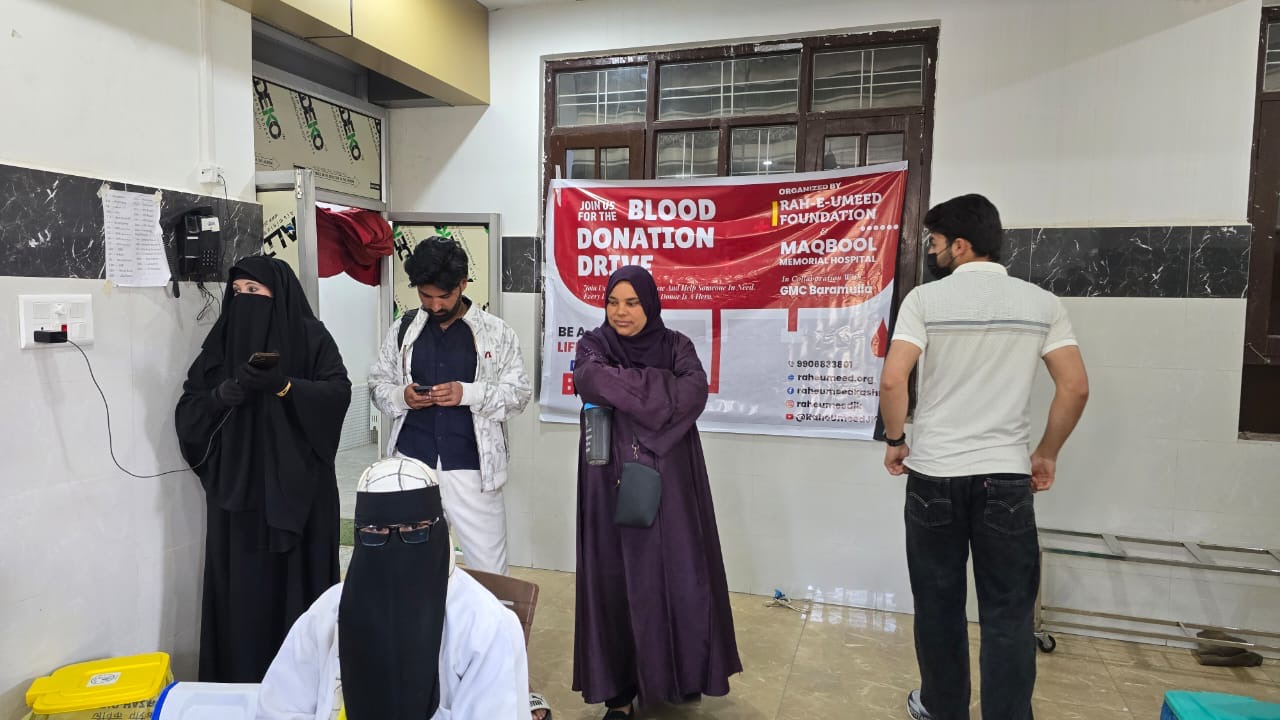
Baramulla : In a heartfelt tribute to the 27 innocent lives lost in the Pahalgam terror attack, the Rah-e-Umeed Foundation and Maqbool Memorial Hospital, in collaboration with Government Medical College (GMC) Baramulla, organized a large-scale blood donation camp in the Palhallan area of north Kashmir’s Baramulla district.
The event, held for the first time in the Pattan region, saw overwhelming participation from locals, with over 50 pints of blood collected. The drive drew support from a wide cross-section of the community, including members of the Traders Association Pattan and media professionals.
Those present during the drive included Medical Superintendent, Associated Hospital, Government Medical College Baramulla, Dr. Parvaiz Masoodi; Managing Director, Maqbool Memorial Hospital, Ishfaq Tantray; Traders Federation President Pattan, Nasir Bashir Shah; Editor-in-Chief of Kashmir Tehalka, Mohammad Lateef; various media persons, and other senior citizens of the area. Their presence added weight and solidarity to the cause, further reflecting the shared sense of grief and purpose within the community.
Prominent social activist Bilkees Ara, known as the “Blood Woman of Kashmir,” was also present at the camp. She commended the Rah-e-Umeed Foundation for their initiative, saying, “This camp is a tribute to the innocent lives lost in the Pahalgam terror attack. It is heartening to see the community come together in solidarity.”
Sajad Ahmad, a representative of the Rah-e-Umeed Foundation, stated that the blood donation drive was specifically organized to remember the victims who tragically lost their lives in the lush forests of Pahalgam. “We wanted to channel our grief into something positive and life-saving. Voluntary blood donation is a noble act that can save countless lives,” he said.
Medical experts from GMC Baramulla closely supervised the donation process, ensuring that all health and safety protocols were strictly adhered to. Their presence provided reassurance to donors and highlighted the importance of safe donation practices.
Local residents lauded the initiative, noting that such community-driven efforts foster unity and strengthen social bonds. Many expressed hope that more such events would be organized to promote awareness about the critical need for regular blood donation.
The Rah-e-Umeed Foundation reaffirmed its commitment to social welfare and pledged to continue holding similar events in the future, encouraging citizens to become regular donors.
This blood donation drive stands as a poignant reminder of the power of collective action and the enduring spirit of community solidarity in the face of tragedy.


